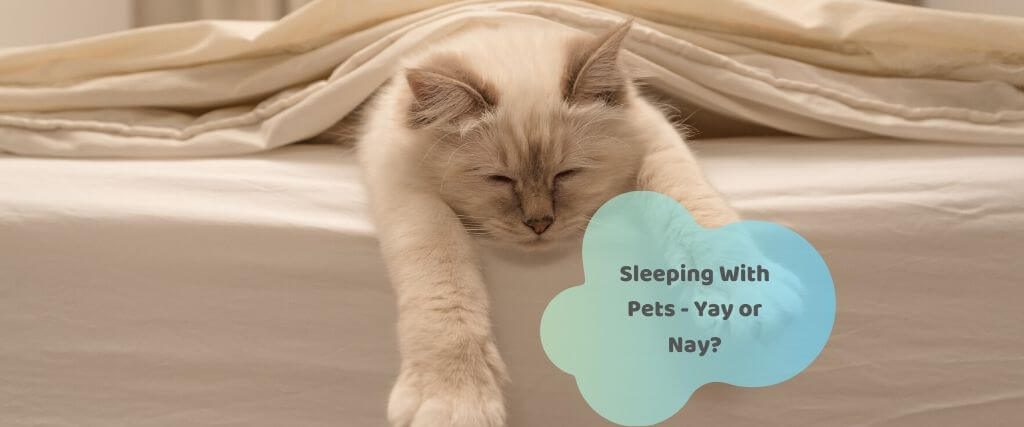You lock the doors, set the burglar alarm, and climb into bed, with the family dog following close behind. You inevitably fall into one of two camps—your pet sleeps alongside you in the bed or he sleeps on the floor...likely in a dog bed beside you (or possibly a crate). If you fall into the latter camp, you might be considering loosening those restrictions due to COVID-19. Let's face it - we're all feeling more vulnerable these days, and your faithful friend beside you in bed can bring comfort. But as your dog or cat settles in next to you, you might not realize some of the pet-related issues that could be affecting you. And it's not just your pet's Olympic level-snoring.
Could there be hidden dangers in your own bedroom, just waiting to attack? We're talking about bacterial, parasitic, and viral diseases that have the possibility to be transmitted to you from your pet.
Why Do Pet Owners Sleep With Their Furry Friends?
For the upwards of 56% of dog owners and 62% of cat owners who sleep with their pets, this is more than just a habit. Letting a pet sleep in your bed offers comfort, relief from anxiety, and companionship. But should a study conducted by the CDC make you rethink this bedtime routine?
The CDC's Findings on Sleeping With Pets
The results of extensive research in the CDC study clearly found that humans were exposed to zoonotic diseases by sleeping with, sharing a bed with, kissing, or being licked by pets. As many as 14% of humans were infected with roundworms. Meningitis, cat-scratch disease (which can come from being licked by infected cats), Chagas disease (which can cause life-threatening heart and digestive system disorders), and even the plague had been transmitted as well. Admittedly, contracting a disease from a pet is rare. But when it occurs, it can be very serious—even deadly—especially in immunocompromised people and the very young. The elderly are also at risk.

Sleeping With Your Pets and Allergies
An additional concern when it comes to letting your pet catch some Zzzzs with you is allergies. You may not be allergic to your dog or cat, but you could be allergic to the pollens that they come into contact with outside, or to the dust that they crawled through under the sofa. Unless you’re washing your pet along with the dust and pollen off their fur every night, those allergens are coming to bed with you.
Ways to Minimize Risks of Sleeping With Pets
Even with this knowledge, it’s unlikely that people everywhere will kick their pets out of their beds. They are our family members after all. There are, however, practical steps you can take to reduce your risks. Because healthy pets carry little risk of disease, regular wellness exams for pets, parasite control, and vaccinations are key. Wash your hands after playing with pets, before preparing food, and after handling feces; and avoid letting your pet lick your face.
So What's The Verdict When it Comes to Sleeping With Pets?
In view of all this, many feel it’s better to be safe than sorry, and opt to have their pets sleep in their own beds beside their own. While the American Veterinary Medical Association does not have a formal recommendation about people sleeping with their pets, what is clear is that the benefits of having a pet - whether they sleep in your bed or not - far outweigh the small risk they pose. This is particularly true if you've been vigilant about keeping up with your regular pet wellness exams.
Have questions about sleeping with your pets, how to stay safe during this pandemic, or other animal wellness queries? Contact us today!

